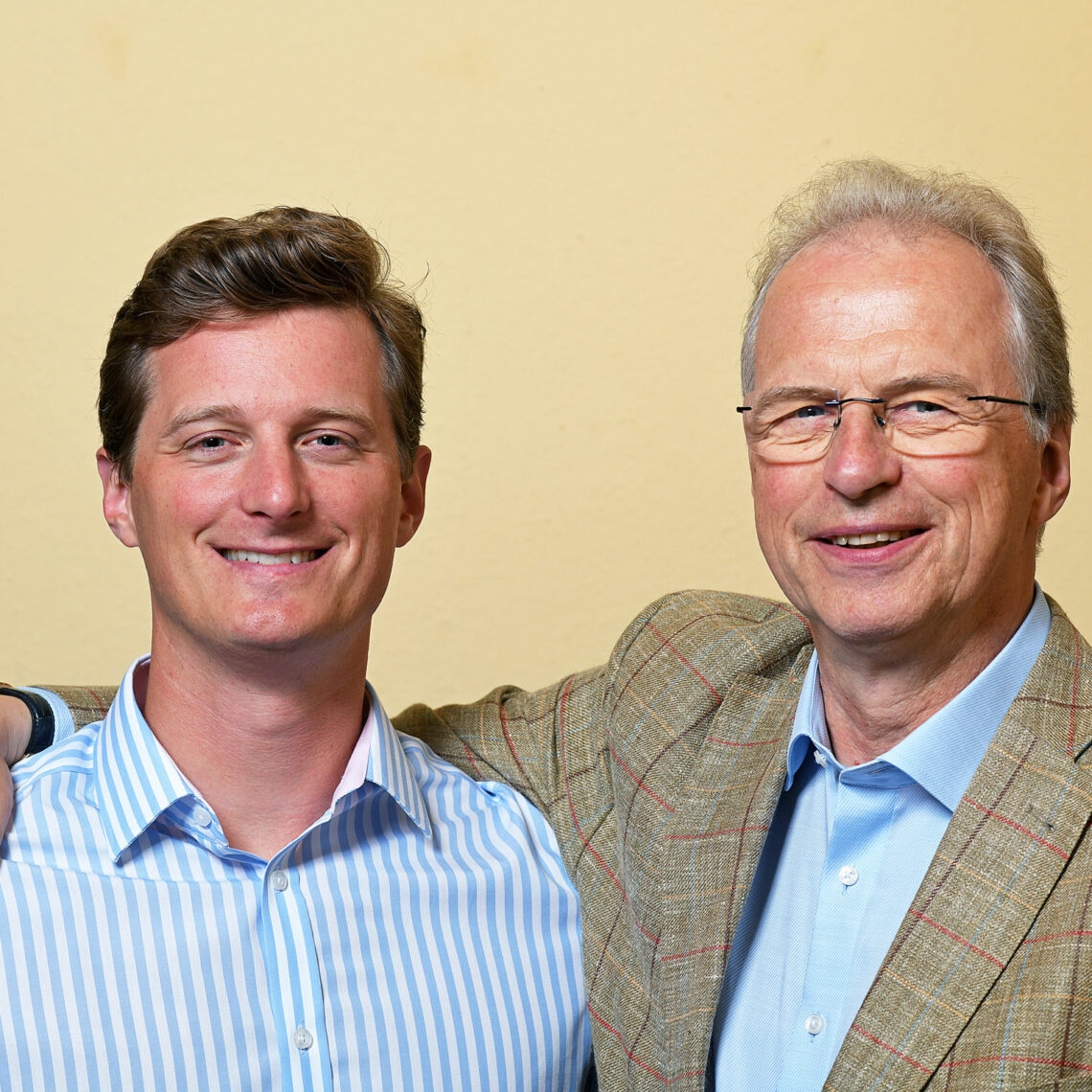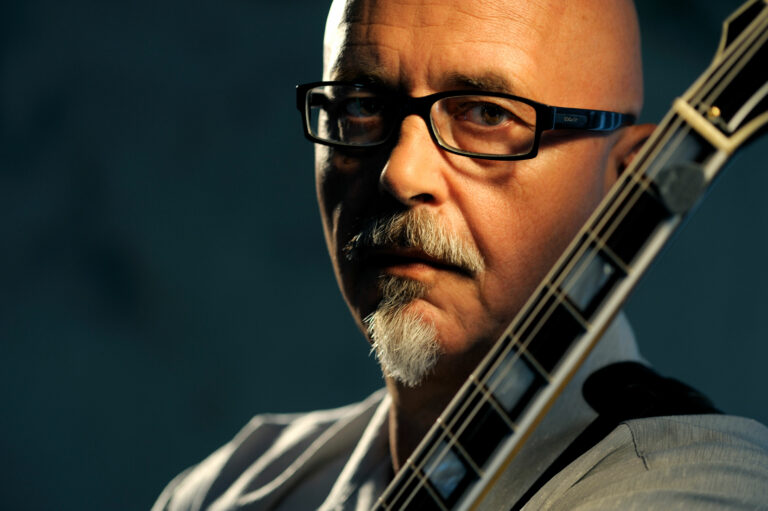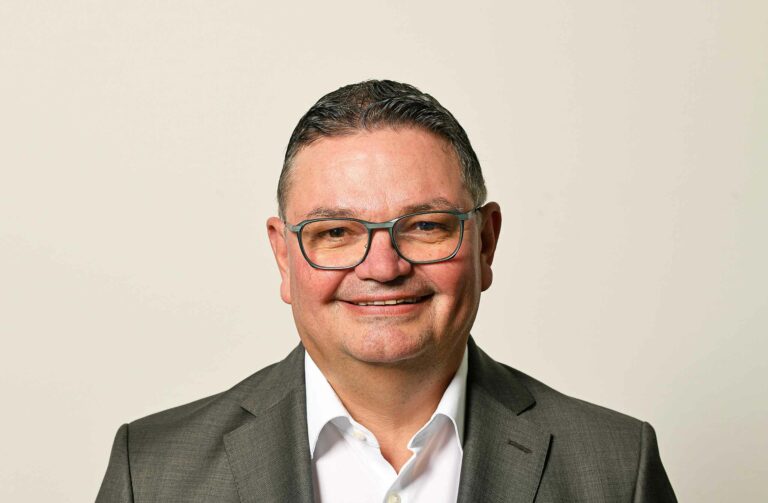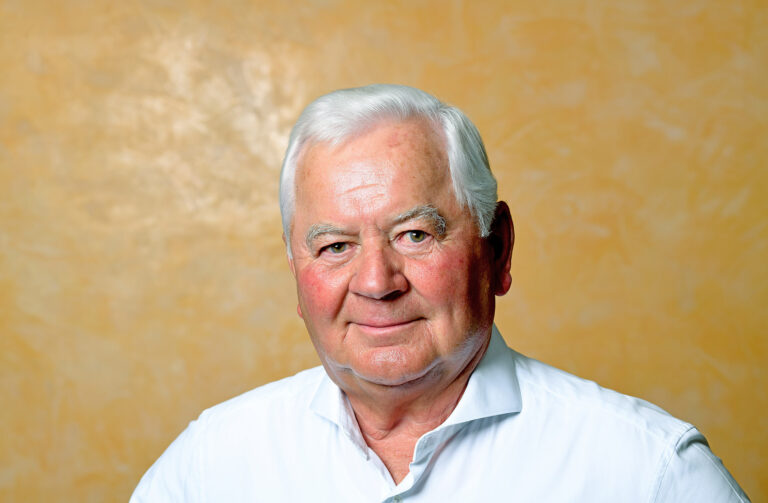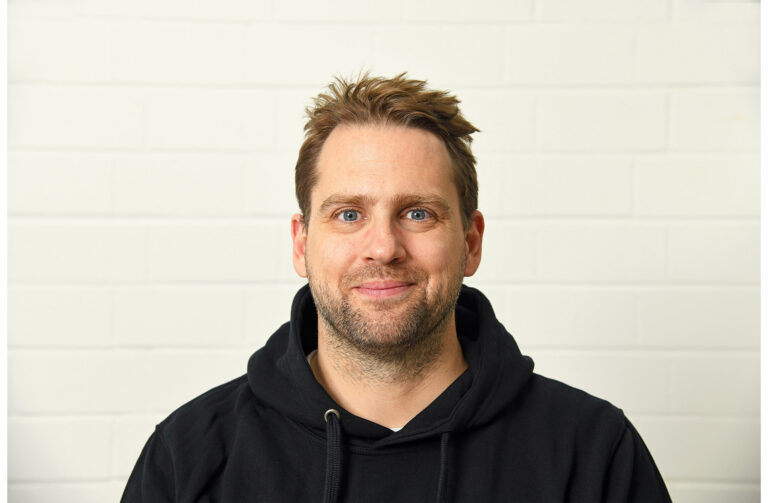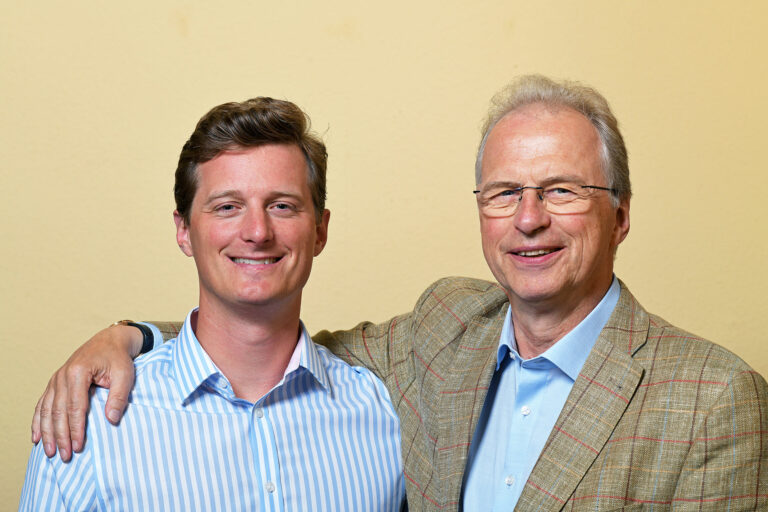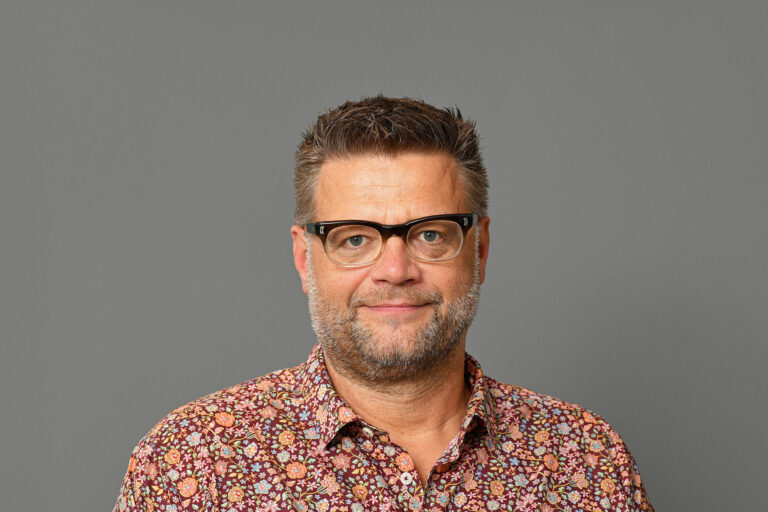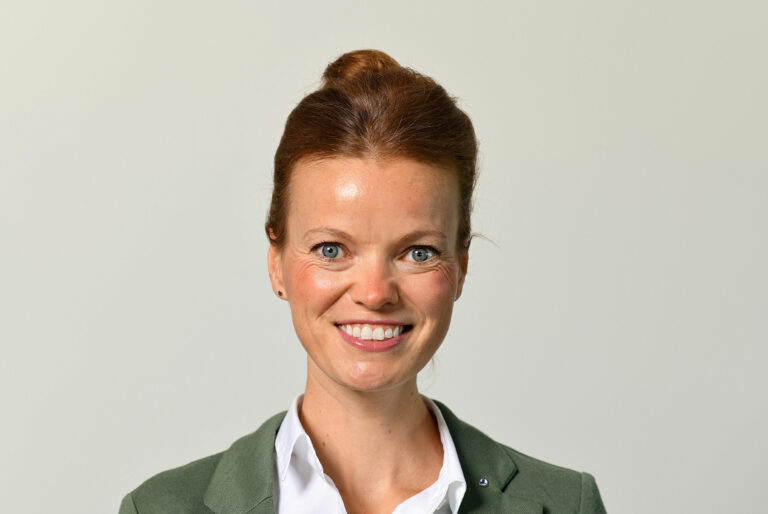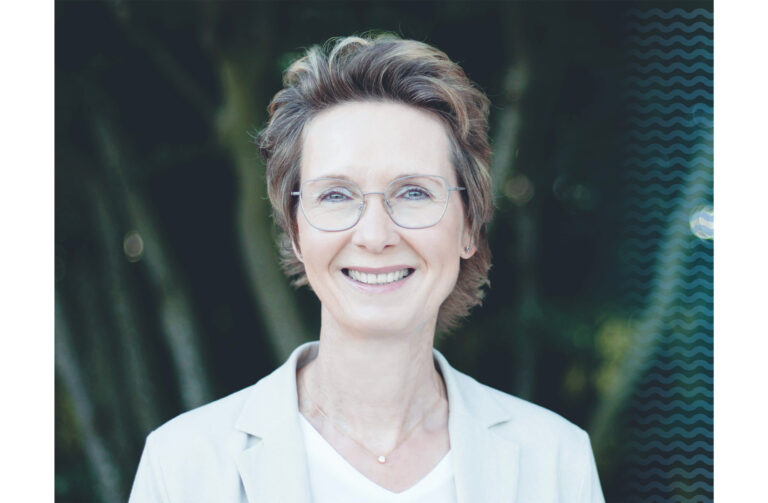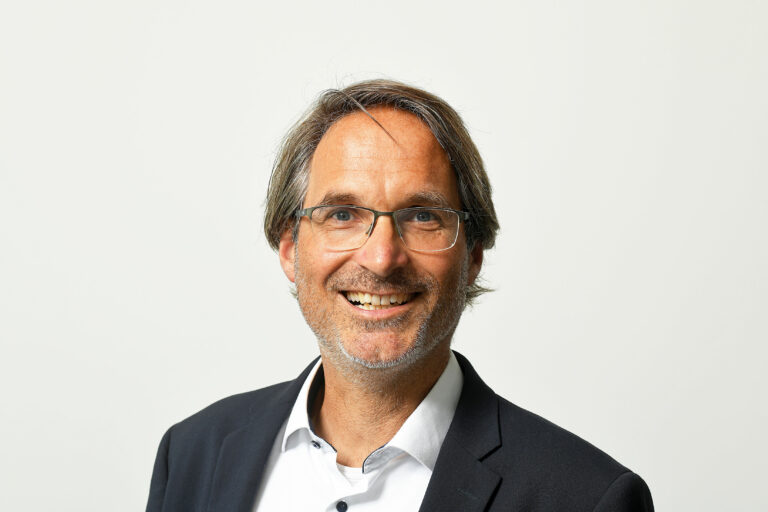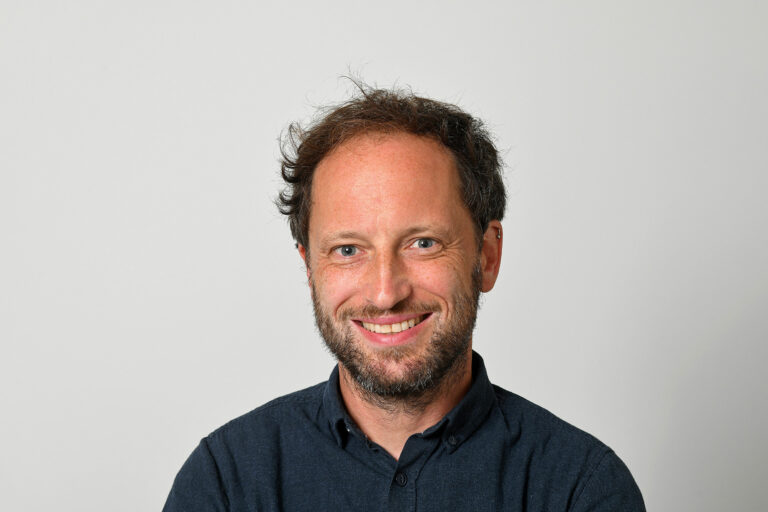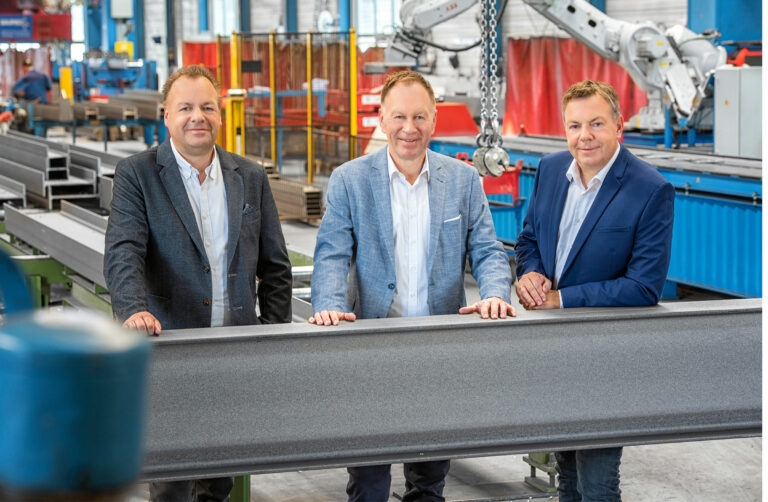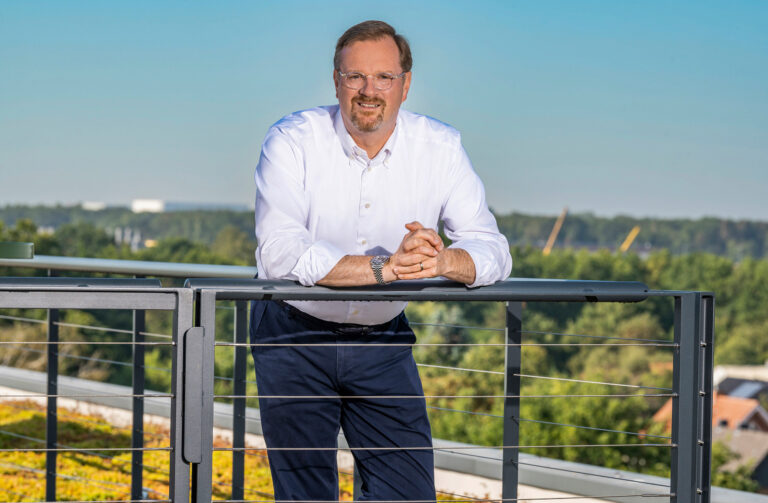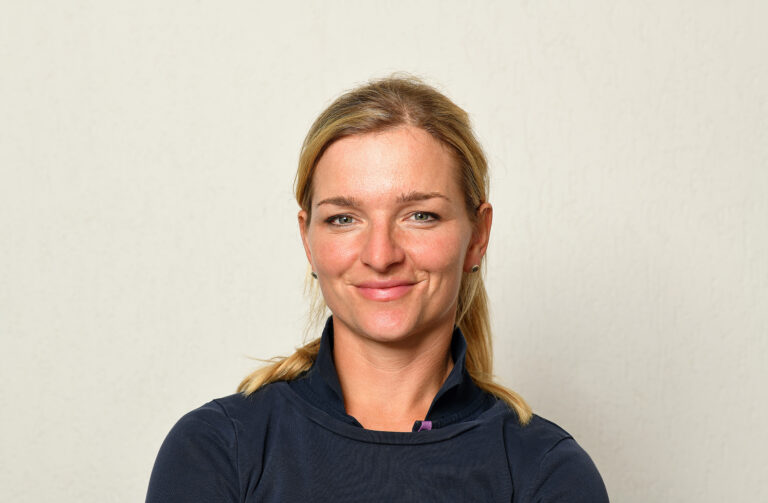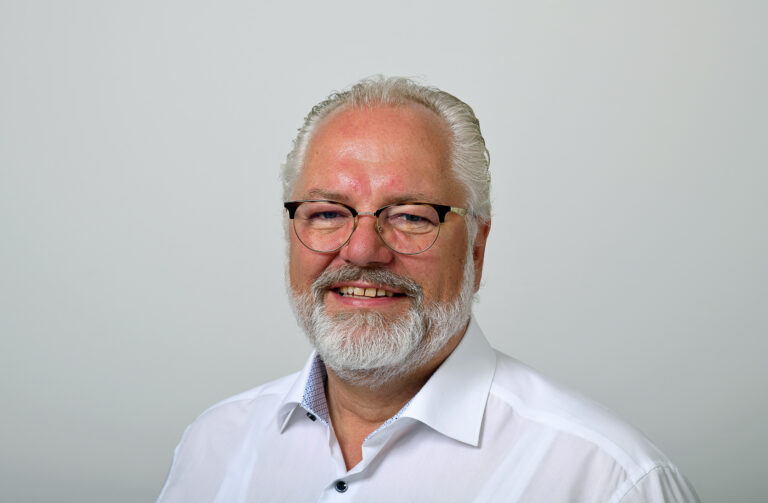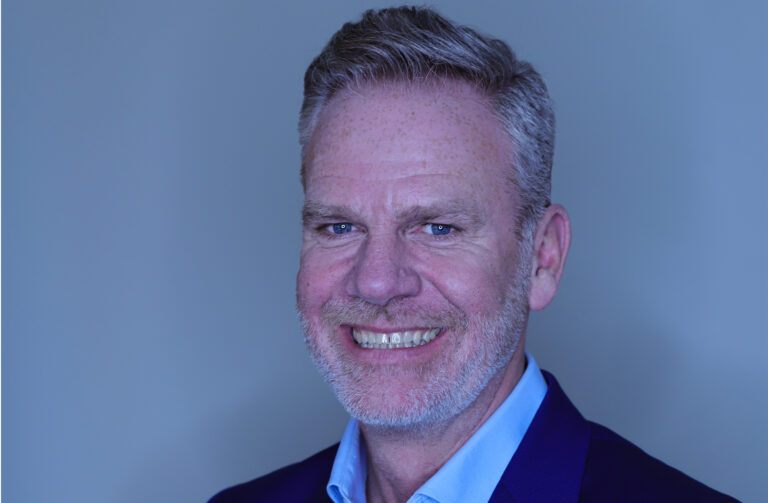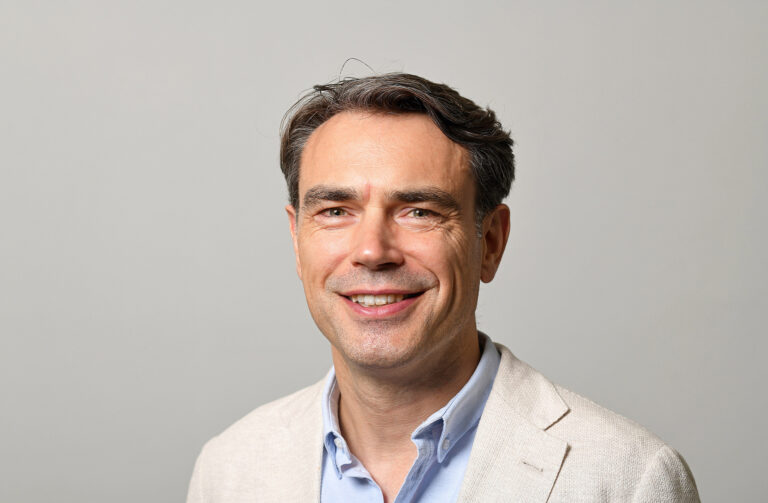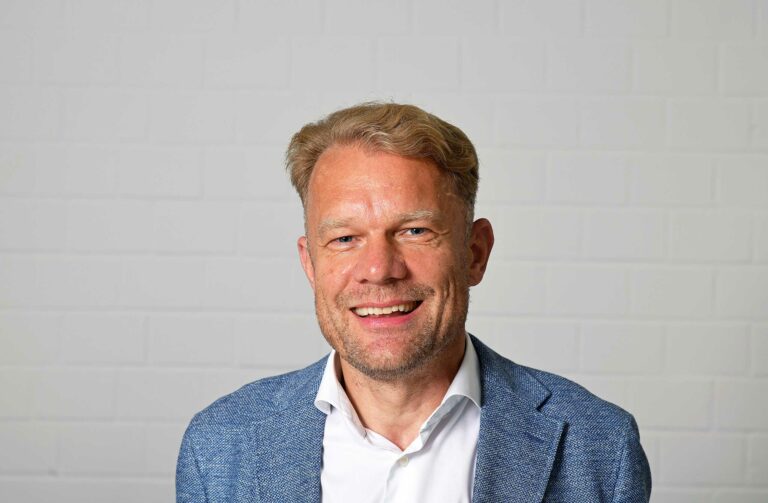Christian and Friedhelm Freihher von Landsber-Velen
As a child, Christian Freiherr von Landsberg-Velen liked nothing better than racing around the playground in Schloss Dankern holiday park and having fun on all the equipment. By contrast, his father never joined in, but stood on the side and watched what was going on. “As a child, I couldn’t understand why he didn’t sit on the swing or have a go on the slide,” says Christian Freiherr von Landsberg-Velen. “Back then, I used to think ‘When I’m grown up, I’ll play all the time’.”
The holiday park and the huge playground are still there, indeed, they’ve grown. But Christian Freiherr von Landsberg-Velen now no longer plays on the swings. He has grown up. In 2021, he took over running the holiday park from his father, Friedhelm Freiherr von Landsberg-Velen, whose own father Manfred had founded it in the 1970s, so that the third generation of the family is now at the helm.
The way that Dankern, part of the town of Haren, actually acquired a holiday park at all, was more a coincidence than actually being planned, says Friedhelm Freiherr von Landsberg-Velen. His father managed the farming and forestry business at Schloss Dankern, commuting regularly from East Westphalia, where his family lived. At some point, he started wondering about what to do with the castle that could no longer be sustained by farming and forestry. Let it fall into decay? Give it away – perhaps to the town or to the rural district? Then he had the idea to open up the castle and the surroun-ding estate for holidaymakers. “There wasn’t any tourism in the region at all back then,” explains Friedhelm Freiherr von Landsberg-Velen. Holidaymakers went to the coast or to the mountains, whereas the Emsland tended to be seen as a ‘poor man’s land’ and definitely not somewhere to go on holiday. There was nothing for visitors to see or do, and the surrounding moorland made people even more sceptical about coming here.
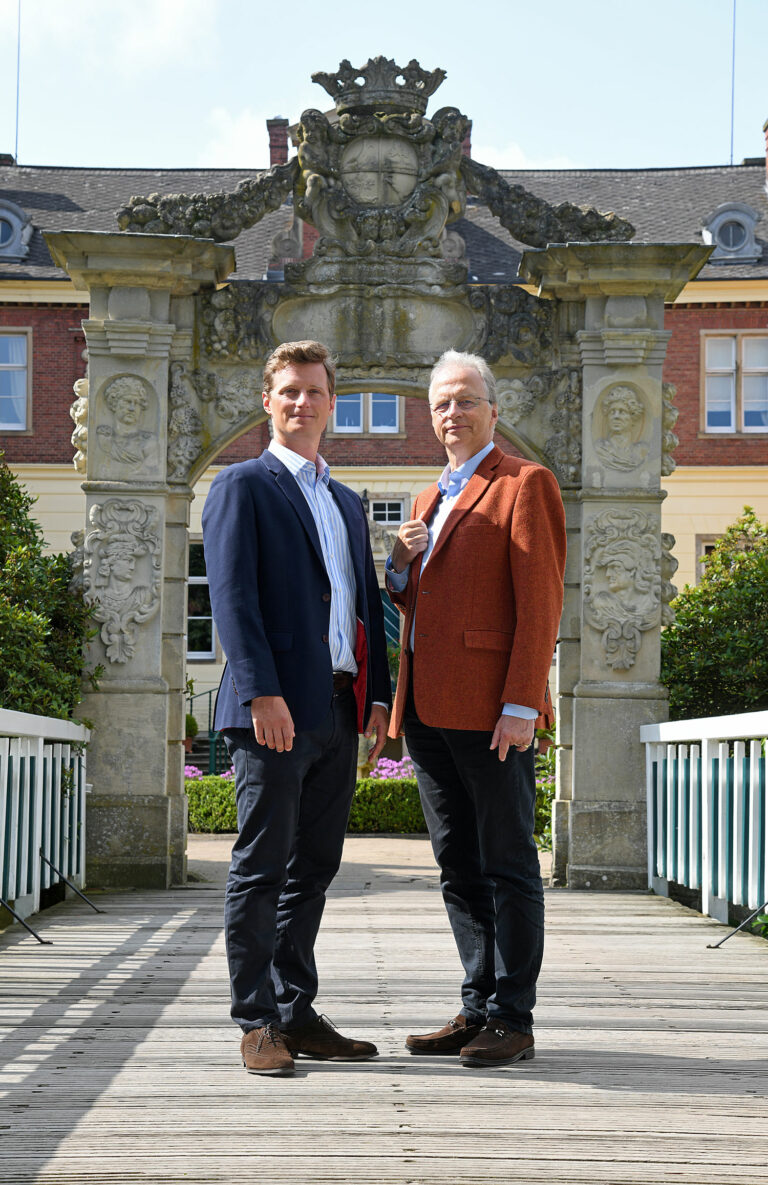
A holiday park in the heart of the Emsland
Even so, Manfred Freiherr von Landsberg-Velen put his plan into effect. Together with Henk Bemboom, founder of Slagharen Pony Park in the Netherlands, he decided to build holiday houses and attractions in Dankern. In 1969, he applied for planning permission for a holiday park covering 60 hectares. “The only reaction was: ‘That’s four fulltime farms.’ They said the area was too large, and that jobs would be destroyed,” recalls Friedhelm Freiherr von Landsberg-Velen. In the end, permission was granted for only about half of the area. Today, the holiday park covers around 200 hectares and provides work for up to 550 people during the peak season.
A holiday park in the heart of the Emsland? This was an exotic idea in those days. Many wondered who on earth would want to go there on holiday. The natural surroundings were also a challenge: moorland all round, pesky mosquitoes during the summer, with the cold, damp air creeping into your bones in the spring and autumn. In the beginning, not even shopkee-pers or owners of cafés and restaurants envisaged any bene-fits from the holiday park. “They couldn’t see any financial benefit,” says Friedhelm Freiherr von Landsberg-Velen. “Fortu-nately, that has all changed completely.” The then-district president of Oldenburg also attended the official opening of the holiday park and was heard to comment rather drily: “If the baron thinks anyone wants to come here on holiday and go home with rheumatism, well, that’s his problem.”
In spite of the scepticism, Manfred Freiherr von Landsberg-Velen wasn’t to be discouraged. “My father was a visionary,” says his son. “He often went against the flow – and was proven right in the end.” The first 110 houses were built in 1972 when a hurricane destroyed most of the forestry business.
“It was a good job that my father had got so far with the construction work, because otherwise the business would probably have been sold after the storm.” So much damage had been caused to the forest that its forestry value had fallen significantly.
Attracting people to the Emsland
As time went by, the holiday park was expanded with the construction of the lido in 1974. More holiday chalets were added, together with attractions that were often ahead of their time, such as the indoor play area, which back then was one of the first of its kind in the whole of Germany. “Innovation has played an essential role in the history of our holiday park,” says Christian Freiherr von Landsberg-Velen.
Time and again, they wondered how to attract people to the Emsland, which was relatively unknown as a holiday region. Manfred Freiherr von Landsberg-Velen travelled around Germany, attended trade fairs and worked with tour operators. One of his achievements consisted in persuading the AWO (Workers‘ Welfare Association) to organise holiday trips to Dankern from the still divided city of Berlin.
Today, around 160,000 holidaymakers head for the holiday park each year, which is now one of the most popular destinations in the region with around 800,000 overnight stays and 100,000 day trippers. In the peak season, there are around 6,000 visitors on the premises every day. Altogether the holiday park has about 1,250 chalets, of which 800 are rented. “We could build even more chalets, but we don’t want to do that,” says Christian Freiherr von Landsberg-Velen, who is the current managing director. “We always have to weigh up what the infrastructure and the premises can tolerate. Having more visitors doesn’t necessarily mean better quality.”
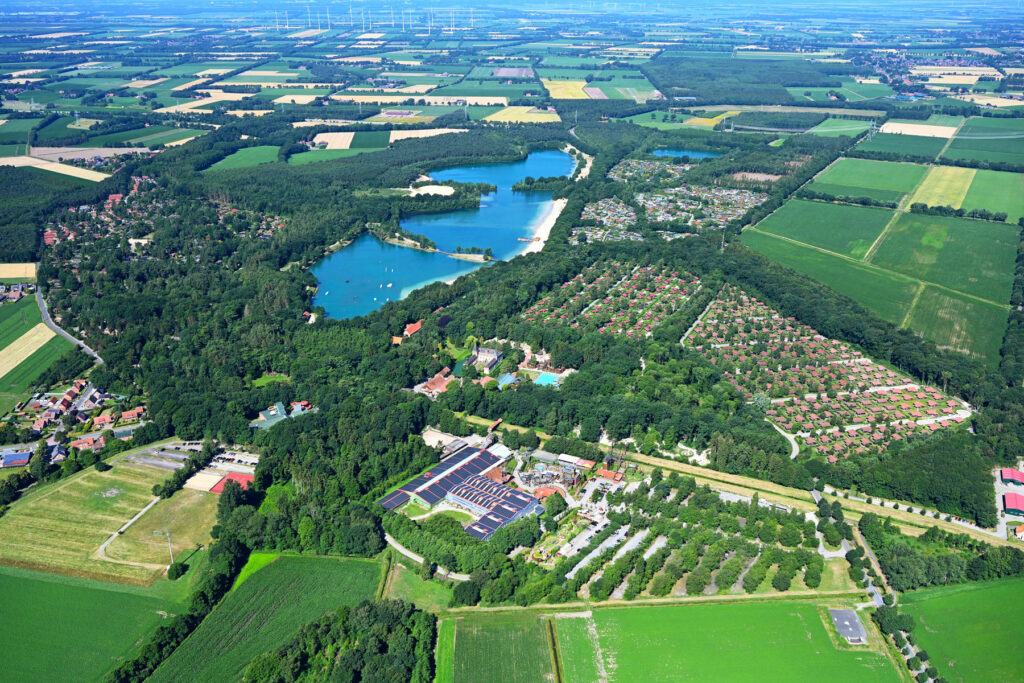
True to the roots
Despite all innovations and extensions, Schloss Dankern holiday park has remained true to the original idea of being a place where families come to have a good time. “Our aim is to make children happy,” says Christian Freiherr von Landsberg-Velen. “When the children are happy, their parents will be too.” One important aspect of the concept is that almost all attractions are included in the price for the accommodation. Furthermore, the price for the holiday chalets is always the same, regardless whether people book months in advance or spontaneously. “Nobody wants to feel they’ve paid more for the same holiday than the people in the next chalet.”
The opening hours of the park have stayed the same for decades. It is open from the start of the Easter holidays to the end of the autumn holidays, after which it is closed for around four months. This policy has several advantages, helping to save energy and costs in a period when there is little demand for accommodation: the buildings and chalets don’t need to be heated if nobody’s there. Besides this, more than half of the holiday park’s power require-ments are covered by its own photovoltaic system, and the indoor swimming pool is heated with district heating. The park also managed to survive the closures caused by the Covid pandemic. “ Fortunately, we survived the long closures and refunded all visitors without any discussions.”
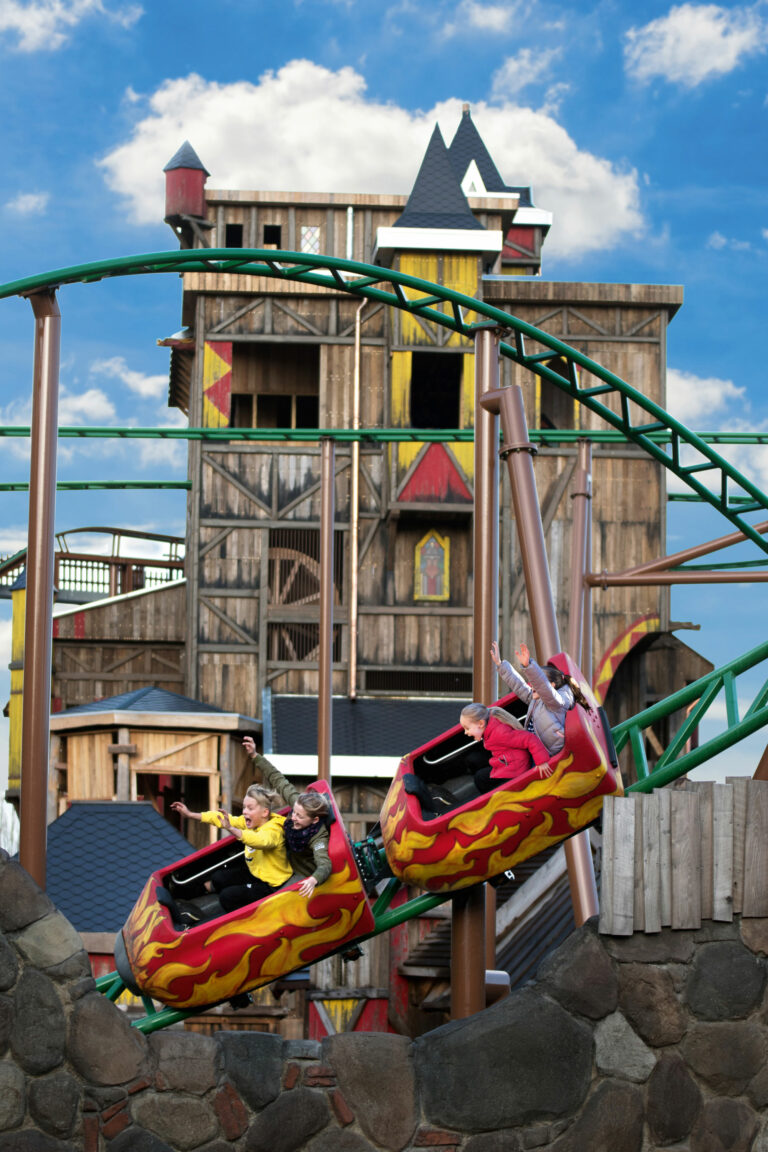
Retourning home
Christian Freiherr von Landsberg-Velen knew from an early stage that he would take over the holiday park one day. “My parents always said that only one of us children can keep the holiday park going,” he says. “I was lucky enough to be the eldest so that I was the first to be asked.” Even so, while he was a student, he also felt that he wanted to do his own thing. He
had a chance to do just that when he was asked to convert Schloss Arff, a castle and estate near Cologne, into an event location.
In 2020, he finally came back to the family company, right in the middle of the Covid pandemic. “It was a crazy time, but we decided that in fact, it was possibly exactly the right time for me to do an internship and familiarise myself with the busi-ness.” He got to know all the parts of the company and even delivered pizzas, before taking on the management of the holiday park in 2021. “We don’t just rent out chalets, we also operate a water ski facility, a swimming pool, a catering ser-vice and a theme park. We must know how to do everything.”
He still discusses things in detail with his father when decisi-ons have to be taken, meeting once a week at a fixed regular time. Even if Christian Freiherr von Landsberg-Velen no longer races round having fun on all the playground equipment, he is still out and about in the holiday park every day.
Other children play there today, including his own. He and his family no longer live in the castle where he grew up, but a good 300 metres away at the heart of the holiday park. He wanted his children to have their own garden, which isn’t possible in a moated castle. At the playground, he’s got his eye on everything, like his father used to. Is one of the swings not hanging properly? Is any of the equipment broken? Is there anything else that could be done better? “There’s always something to do.”
The holiday park concept still seems to be successful: Around 65 percent of the visitors keep coming back. Some return as grandparents with their grandchildren, some people who came here on holiday as children now come back with their own children, wanting them also to have a good time! “When children from the old days come here again today with their own children, then we know we must have done something right.”
ESF Emsland Spiel- und Freizeitgeräte GmbH & Co. KG
Sie sehen gerade einen Platzhalterinhalt von Standard. Um auf den eigentlichen Inhalt zuzugreifen, klicken Sie auf den Button unten. Bitte beachten Sie, dass dabei Daten an Drittanbieter weitergegeben werden.
Mehr Informationen
